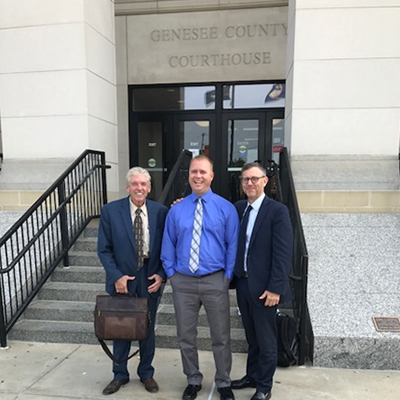January 16, 2024
On August 29, 2023, the Department of Health and Human Services (HHS) reportedly recommended to the Drug Enforcement Administration (DEA) that marijuana be rescheduled from Schedule I to Schedule III under the Controlled Substances Act (CSA). DEA is currently reviewing HHS’s recommendation.
When considering whether to schedule or reschedule a controlled substance, DEA is bound by HHS’s recommendations on scientific and medical matters.
However, DEA has also stated that it has “final authority to schedule, reschedule, or deschedule a drug under the Controlled Substances Act.”
A previous CRS Insight outlined policy considerations related to rescheduling marijuana. This Legal Sidebar provides additional information on the legal consequences of the possible move of marijuana from Schedule I to Schedule III.
Current Legal Status of Cannabis Under the CSA
Cannabis and its derivatives generally fall within one of two categories under federal law: marijuana or hemp. Unless an exception applies, the CSA classifies the cannabis plant and its derivatives as marijuana (some provisions of the statute use an alternative spelling, “marihuana”).
The CSA definition of marijuana excludes
(1) products that meet the legal definition of hemp and (2) the mature stalks of the
cannabis plant; the sterilized seeds of the plant; and fibers, oils, and other products made from the stalks and seeds.
Marijuana is a Schedule I controlled substance under the CSA.
Federal law defines hemp as the cannabis plant or any part of that plant with a delta-9
tetrahydrocannabinol (THC) concentration of no more than 0.3%. The non-psychoactive compound cannabidiol (CBD) falls within the legal definition of hemp. Hemp is not a controlled substance under the CSA.
Substances become subject to the CSA through placement in one of five lists, known as Schedules I through V.
Congress placed marijuana in Schedule I in 1970 when it enacted the CSA. A lower schedule number carries greater restrictions under the CSA, with controlled substances in Schedule I subject to the most stringent controls. Schedule I controlled substances have no currently accepted medical use.
It is illegal to produce, dispense, or possess such substances except in the context of federally approved scientific studies, subject to CSA regulatory requirements designed to prevent abuse and diversion.
RESTORE YOUR SECOND AMENDMENT RIGHTS
RESTORE YOUR PROFESSIONAL LICENSE
RESTORE YOUR DRIVER LICENSE
RESTORE YOUR PAST (Expungements)
Call our Office for a free case evaluation
Komorn Law (248) 357-2550
Unauthorized activities involving Schedule I controlled substances are federal crimes that may give rise to large fines and significant jail time. DEA is required to set annual production quotas for Schedule I controlled substances manufactured for use in approved research.
In addition to the general regulatory framework that applies due to marijuana’s Schedule I status, some provisions of the CSA apply specifically to marijuana. For instance, 21 U.S.C. § 841 imposes mandatory minimum prison sentences for persons convicted of criminal CSA violations involving set quantities of specific controlled substances, including marijuana. In addition, 21 U.S.C. § 823 creates special registration requirements for those who manufacture marijuana for research purposes.
In sharp contrast to the stringent federal control of marijuana, in recent decades nearly all the states have changed their laws to permit the use of marijuana (or other cannabis products) for medical purposes.
In addition, twenty-four states and the District of Columbia have passed laws removing certain state criminal prohibitions on recreational marijuana use by adults.
As the Supreme Court has recognized, states cannot actually legalize marijuana because the states cannot change federal law, and the Constitution’s Supremacy Clause dictates that federal law takes precedence over conflicting state laws.
So long as marijuana is a Schedule I controlled substance under the CSA, all unauthorized activities involving marijuana are federal crimes anywhere in the United States, including in states that have purported to legalize medical or recreational marijuana.
Nonetheless, Congress has granted the states some leeway to allow the distribution and use of medical marijuana.
In each budget cycle since FY2014, Congress has passed an appropriations rider barring the Department of Justice (DOJ) from using taxpayer funds to prevent states from “implementing their own laws that authorize the use, distribution, possession, or cultivation of medical marijuana.” Courts have interpreted the appropriations rider to prohibit federal prosecution of state-legal activities involving medical marijuana.
However, it poses no bar to federal prosecution of activities involving recreational marijuana.
Moreover, the rider does not remove criminal liability; it merely limits enforcement of the CSA in certain circumstances while the rider remains in effect. While official DOJ policy has varied somewhat across Administrations, recent presidential Administrations have not prioritized prosecution of state-legal activities involving marijuana.
Read the rest here –> Legal Consequences of Rescheduling Marijuana Jan 2024

Komorn Law – Federal Courts and All Michigan Courts
More Posts

Michigan Methamphetamine Defense
Bill Schuette, the current Michigan Attorney General, is waging war against Meth users, dealers and labs. Innocent people get swept up with meth crimes when police run field tests on any powdery substances, frequently returning false positive results. Komorn...
Foster Care Agencies Allegedly Discriminated Against Poor, Medical Marijuana Patients
Two families -- including one mom who alleges Child Protective Services took her suckling baby from her breast -- are suing the state, alleging discrimination because they are medical marijuana users and poor. In the lawsuit, attorney Michael KOMORN alleges the...
MMMA-Profile-Michael-Komorn
Here are some links to articles posted by Attorney Michael Komorn US Government Collecting and Using Citizen Communications NATIONAL TOXICOLOGY PROGRAM Technical Report Series No. 446 (1996) Oral cannabis extracts as a promising treatment for the core...

Komorn Law – Victory in Genesee County
Komorn Law PLLC is proud to report a ruling today from the Genesee County Circuit Court. This case involved my client's property and all kinds of salacious allegations of really bad behavior by this property, and I mean bad stuff, like stuff you could never...

Komorn Law AVVO Ratings
KOMORN LAW AVVO - RATINGS Read Client AVVO Reviews

Komorn Law-In the News-Fox17
Komorn Law | In the News | Fox 17 News | Links Medical marijuana battle: Father fights for custody of son OTTAWA COUNTY, Mich. – Medical marijuana is a controversial, sometimes sticky issue, especially in Michigan. Max Lorincz is a father from Spring Lake who...

US court upholds ban on selling guns to marijuana card holders
SAN FRANCISCO — A federal ban on the sale of guns to medical marijuana card holders does not violate the Second Amendment, a federal appeals court said Wednesday. The ruling by the 9th U.S. Circuit Court of Appeals applies to the nine Western states that fall under...
AVVO Ratings and Reviews Update Aug 2016
Michael Komorn’s reviews 5.0 stars - 23 Total Avvo Rating: 10.0 out of 10 Cases dismissed 5.0 stars Posted by Ryan August 24, 2016 I had two charges in Wayne county. I was facing 6 years in prison. Michael was very informative and reassuring...

US Dept of Justice letter regarding prosecution for marijuana
Attorney General Eric Holder's speech regarding dropping mandatory minimums for many drug crimes is already making an impact. Read the letter from the DOJ

Clio marihuana dispensary fighting Genesee County Prosecutor’s office in court
CLIO (WJRT) - (04/25/16) - A Mid-Michigan marihuana dispensary is fighting the Genesee County Prosecutor's office in court after FANG shut them down. The owner of the Clio dispensary says warrants weren't valid and he wants his business back open. Attorneys...








